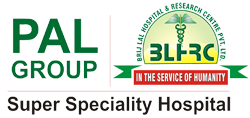
Heart attacks are one of the most common causes of death worldwide, and it’s important to be able to recognize and respond to the warning signs of a heart attack in order to get medical help as quickly as possible. While heart attacks can be fatal, many can be prevented or treated with prompt medical attention. In this blog, we will explore the warning signs of a heart attack and what you should do if you or someone you know experiences them.
What is a heart attack?
A heart attack, also known as a myocardial infarction, occurs when the blood flow to the heart is blocked, usually by a blood clot. The lack of blood flow and oxygen can cause damage or death to the heart muscle. Common causes of heart attacks include high blood pressure, high cholesterol, smoking, obesity, and a family history of heart disease.
What are the warning signs of a heart attack?
The warning signs of a heart attack can vary from person to person, but the most common symptoms include:
Chest pain or discomfort: This is the most common symptom of a heart attack. The pain or discomfort may feel like pressure, squeezing, or fullness in the chest. It may also be described as a burning or tight sensation. The pain may last for several minutes or come and go.
Shortness of breath: If you’re having trouble catching your breath or feel like you can’t get enough air, it may be a sign of a heart attack.
Pain or discomfort in other areas of the upper body: The pain or discomfort may radiate to the arms, back, neck, jaw, or stomach.
Nausea or vomiting: Some people experience nausea or vomiting during a heart attack.
Cold sweat: If you’re suddenly sweating and your skin feels clammy, it may be a sign of a heart attack.
Lightheadedness or dizziness: Feeling lightheaded or dizzy can be a sign that your heart is not getting enough oxygen.
What should you do if you or someone you know experiences these warning signs?
If you or someone you know experiences any of the warning signs of a heart attack, it’s important to seek medical attention immediately. Call 911 or your local emergency number right away. Don’t wait to see if the symptoms go away on their own. Time is critical when it comes to treating a heart attack and getting medical help quickly can make a big difference in the outcome.
While you’re waiting for the ambulance to arrive, try to stay calm and relaxed. Sit or lie down, and try to take slow, deep breaths. If you’re alone, don’t try to drive yourself to the hospital.
If you’re experiencing chest pain, take one nitroglycerin tablet, if it has been prescribed by your doctor. Do not take any other medications or home remedies, such as aspirin, unless instructed to do so by a healthcare professional.
If the person experiencing the heart attack becomes unconscious, check for breathing and pulse. If there is no pulse or breathing, begin CPR if you are trained in it, until medical help arrives.
What can you do to prevent a heart attack?
A healthy diet
Eating a healthy diet can help to reduce your risk of heart attack. A heart-healthy diet should include plenty of fruits, vegetables, whole grains, lean proteins, and healthy fats. It’s important to limit your intake of saturated and trans fats, which can raise your cholesterol levels and increase your risk of heart disease.
Exercise regularly
Regular exercise is another key way to prevent a heart attack. Aim for at least 150 minutes of moderate-intensity exercise per week, such as brisk walking, cycling, or swimming. Exercise can help to improve your heart health, lower your blood pressure, and reduce your risk of heart disease.
Maintain a healthy weight
Being overweight or obese can increase your risk of heart disease and heart attack. Maintaining a healthy weight can help to reduce this risk. Try to maintain a healthy weight through a combination of healthy eating and regular exercise.
Conclusion
In conclusion, preventing a heart attack requires making certain lifestyle changes such as maintaining a healthy diet, regular exercise, managing stress, quitting smoking, managing chronic conditions, getting enough sleep, and limiting alcohol consumption. It is important to take these steps to improve heart health and reduce the risk of heart disease and heart attack.
In case you or someone you know experiences any heart attack warning signs, it is important to seek immediate medical attention. In such cases, it is reassuring to know that Brijlal Hospital, located in Uttarakhand, is one of the best hospitals equipped to handle emergency situations and provide quality cardiac care. With state-of-the-art facilities and experienced medical professionals, Brijlal Hospital is dedicated to providing the best possible care to patients.
